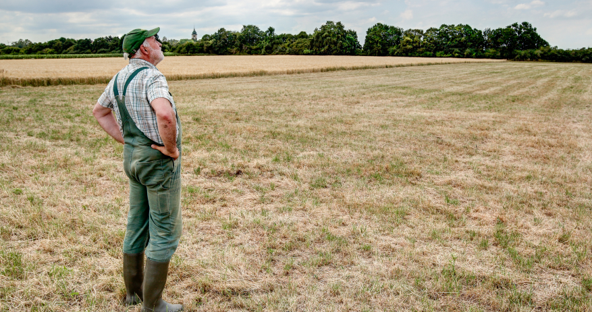International Men's Health Week runs this week, from 10 to 16 June 2024.
International Men’s Health Week, held in June each year, offers an annual opportunity to heighten awareness of preventable health problems for males of all ages, to support men and boys to engage in healthier lifestyle choices/activities and encourage the early detection and treatment of health difficulties in males.
At SETU, we’re proud to be home to the National Centre for Men's Health (NCMH) based on our Carlow campus, led by Dr Noel Richardson and his team.
Dr Noel Richardson, lecturer and co-Director of SETU healthCORE, has extensive experience in the area of men’s health at a research, policy and advocacy level. He has published a broad range of research reports and academic papers in the area of men’s health. His current research interests include; monitoring the impact of policy and capacity-building measures in men’s health; men, masculinities and mental health; and health promotion interventions targeted at ‘hard to reach’ groups of men (including farmers and construction workers) in community and workplace settings.
Speaking about the importance of this research, SETU Vice President for Research, Innovation and Impact, Prof Marie Claire Van Hout, commented “Research of this kind is crucial in working towards helping those men working in at-risk sectors. We spend so much of our lives in the workplace, that initiatives such as this can really make a difference”.
“We’re extremely proud to be the home of the National Centre for Men's Health, where our researchers continue to make positive contributions to such an important topic”.
The ‘CAIRDE’ Project
International research shows that construction workers are at higher risk of mental health issues and suicide compared to the general population. This is due largely to occupational-specific risk factors and a heightened macho culture on site which can lead to reticence to seek support during times of distress. Although such data is unavailable for Ireland, there have been few attempts to develop or implement suicide prevention strategies in the Irish construction industry.
In order to address this gap, the Men’s Health Forum in Ireland (MHFI) was commissioned by the Health Service Executive’s (HSE) National Office for Suicide Prevention (NOSP) to investigate this issue in the Republic of Ireland. The National Centre for Men’s Health, South East Technological University, worked with MHFI and embarked on a comprehensive programme of research (the CAIRDE project) to inform the design of suicide prevention training and resources, tailored to the Irish construction industry context.
The aim of the CAIRDE project is to reduce stigma, enhance knowledge around suicide, and encourage help-seeking and help-offering in the construction industry.

‘On Feirm Ground’
Farmers experience a disproportionate burden of physical and mental health issues. Although efforts to engage farmers in their health can be challenging, increasing evidence supports the integration of such efforts into farmers’ pre-existing resources. We know that farm advisors have earned the respect of farmers, are relatable to farmers, and have a safe and trusting relationship with their clients, their family backgrounds and personal circumstances. Whilst previous research has highlighted that advisors are open to supporting farmers’ health, they feel ill-equipped to do so, and have expressed a need for education and training to engage farmers with their health. “On Feirm Ground” was designed to train advisors to have a proactive role in promoting farmers’ health and signposting farmers with health issues to appropriate services and supports.
Findings from the evaluation of the delivery of “On Feirm Ground” training to advisors (n=187) revealed that:
- Advisors’ self-reported knowledge of mental health, capacity to recognise the signs and symptoms of health challenges, and willingness to signpost and advocate for farmer wellbeing significantly improved from pre to post training. These improvements remained statistically significant 6 months post-training.
- Advisors highlighted that the training was an eye-opener in terms of becoming more aware of the high levels of adverse health outcomes associated with the farming population in Ireland, as well as acting as a catalyst for reconfiguring their interactions with the farmers they serve.
- Findings in relation to advisors’ increased capacity to identify signs of poor mental health and to signpost farmers to appropriate support services, is particularly noteworthy, in light of the prevalence of mental health issues within the farming community. Advisors did, however, express some concerns about the paucity of appropriate health and support services in rural Ireland.
- Findings from this study can be a springboard for extending the reach of training to other aspects of farming support services (e.g. agri-banking, agri-business, veterinary services, etc.).
For more, tap here.
Farming minds
‘Farming Minds’ is a collaboration between the National Centre for Men’s Health (NCMH) at SETU, Agricultural Science and Psychology at University College Dublin, and ‘UCD Agri Mental Health Group’ interdisciplinary team. Funded by the Department of Agriculture, Food and Marine (DAFM), the aim of the project is to develop and test the feasibility and effectiveness of a scalable psychological intervention for farmers to target the key areas (i.e., mental health, stress, resilience) in terms of prevention and early intervention. In collaboration with and building on the existing framework of On Feirm Ground with farmer health, the aim is to develop evidence-based interventions that go beyond signposting to support the development of key psychological skills. For more, see: https://www.ucd.ie/agrimentalhealth/fundedprojects/farmingmindsproject/

Male third level student mental health
The prevalence of mental health disorders among university students has increased in the past decade. An international survey of 14,000 college students reported that 35% met the criteria for at least one common mental health disorder (Auerbach et al., 2016). Suicide remains the fourth leading cause of death among young people aged 15-29 years old. The young male suicide rate is three times higher than the female rate. Young men are among the least likely demographic group to seek help for a mental health problem with females being 2-4 times more likely to access treatment.
Therefore, the NCMH team surveyed 480 male students to explore the factors associated with a mental health problem, suicidal behaviour and delayed help-seeking. We also conducted follow-up interviews with 18 male students to explore these issues in more detail. The analyses of this data is ongoing and has the potential to inform future training and campaigns to engage this cohort around their mental health.










